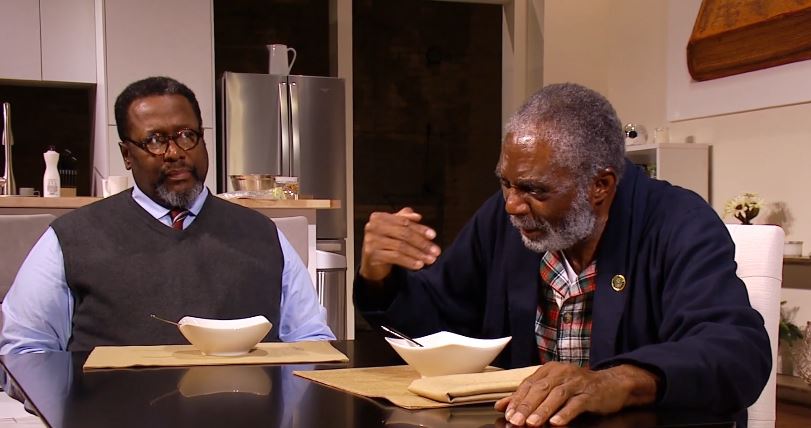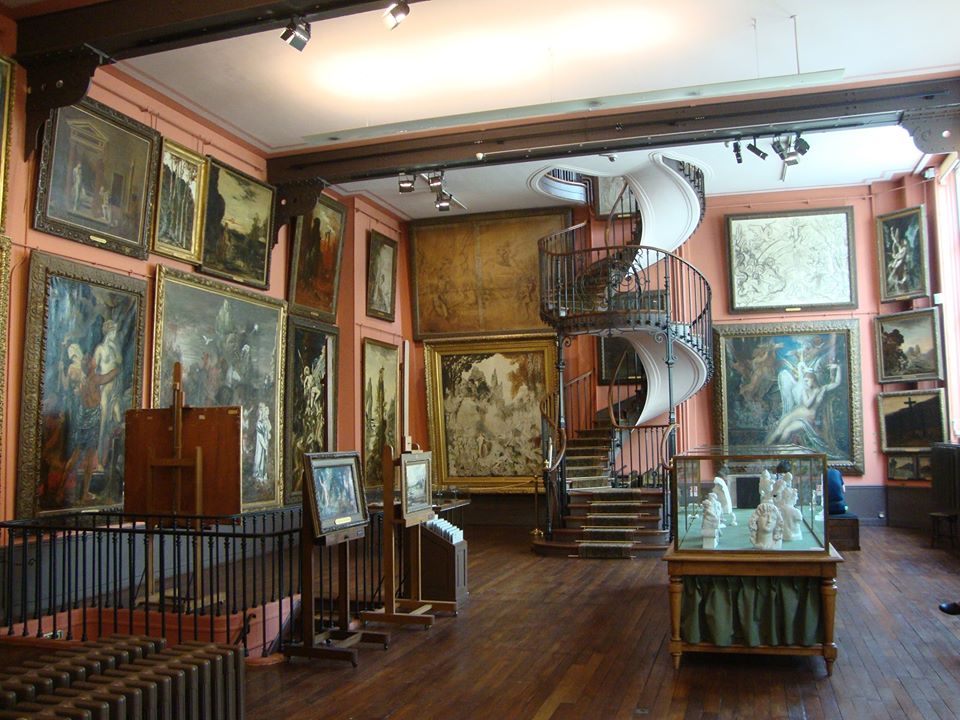Thomas Jefferson proposed that ‘All men are created equal’. And playwright James Anthony Tyler sets out to affirm that proposal and simultaneously deny it in Some Old Black Man. These are my thoughts and responses to Some Old Black Man as recently presented online by the University Musical Society at the University of Michigan.
We are initially confronted by two widowed Black men about to have their first breakfast together after being forced into sharing an apartment. First we have our old Black man, 82 year old Donald Jones, who has been brought from his rural home in Mississippi, and his middle aged son, Calvin Jones, PhD., the owner of the New York City apartment that they now share. Things don’t start out too well.
Now, this play is unique in my experience, in that it talks very bluntly about race and racism whel the only characters are two Black men. And racism certainly isn’t the topic that they intend to discuss at breakfast but as feelings begin to surface and histories revealed, racism often comes to the fore. And because of their age differences and life decisions, systemic racism touched them in different ways and affected them in different ways. They can both feel it themselves although they don’t always see how much harm it may have caused them personally. But more importantly they don’t see how much harm it has inflicted on their loved one. We see it during their discussion and we aren’t surprised by their revelations…we have heard it far too many times already…but neither the characters nor the audience are quite prepared to accept how much it has harmed these men. It takes the entire play before they start their own understanding as well.

And there are a lot of other dynamics here that shouldn’t be overlooked because they cloud the entire atmosphere.
First, there are two other characters who have a major influence. Those are the late wives of each of these men. They are both products of those relationships. They both feel a great sense of loss and feel the major holes left in their lives. And they are both still in a major state of grief, although they don’t readily admit it, and again the other can’t sense it. So it adds to the missteps and miscommunications, but it is very very human.
And there are two other common human experiences. One of course is generational. The father versus son, the old man versus younger, old school versus new. Unfortunately it seems that because of earlier misunderstandings these two men never got past that distrust that youth has of parents or parents holding onto their view of their children. They have never started the move to interacting as two adults as would be expected as children are launched. Some of that healing starts with this breakfast conversation.
And then there’s the rural versus urban life styles. Donald is from Greenwald, a small town in Mississippi where he was a taxi driver while his son, Calvin is a professor at NYU with a penthouse in Harlem. There is little that Donald finds to his liking. His loss of freedom, loss of familiarity and friends, noise, crowds, and the fancy digs he now finds himself in. In any family dynamic this would be a hard change and it just adds to the dilemma. But it also helps open the door to the communication that gets started here.
And then there is one last thing on Donald’s mind. He is scared. His 82 year old body is starting to fail him. We hear talk of falls and passing out and mini-strokes. We see him stumble and bend over out of breath and exhibit dizziness…the very reasons his son has brought him into is home…he can’t care for himself anymore. No matter how often he says he’s OK…he knows that he is not.
One thing that struck me through the play was the number of times that Donald seemed vulnerable either from a physical ailment or an emotional breakdown…when you would expect Calvin to come over and assist him. I wondered why didn’t he…that would be my inclination. But when he finally did and Donald screamed don’t touch me, I understood. If I had had a similar life experience with my father, he would have reacted much the same way.
The University Musical Society was very fortunate. They had the resources to isolate the cast and crew and keep them safe and well…and then put together a stage set in an empty space…and present this as a play. And it has the intimacy and charm of a theater production that is being televised as opposed to a TV show or a movie. What a joyful experience for the viewer.
Director Joe Cacaci did a marvelous job putting this thing together. The timing and staging are marvelous…the cameras reinforced the story rather than distract. I didn’t feel that I would have wanted to look elsewhere as the story unfolded.
Charlie Robinson portrayed Donald Jones and he absolutely nailed it. At no time did I doubt his story or sincerity or his expressed experience. Although his anger rang true, you could feel it was coming from frustration rather than from a flaw in Donald’s character.
And Dr. Jones was played by Wendell Pierce who certainly made his presence felt in the face of Donald’s intensity. But there were a few times when I thought he could have been angrier or pushed back a bit more…that maybe he was too….well…gentrified. But he was marvelous in the role.
I had never heard of the University Musical Society before and became aware of Some Old Black Man via Wendell Pierce’s interview on NPR. You can listen to that here!
And the background on the play as presented by the University Musical Society can be found here. There are two short videos, one on the making of the video and one on the set design. They are both worth watching and only run minutes each. And there is also a link to get on a mailing list for notification when the video will be presented again. You should probably get on it!
